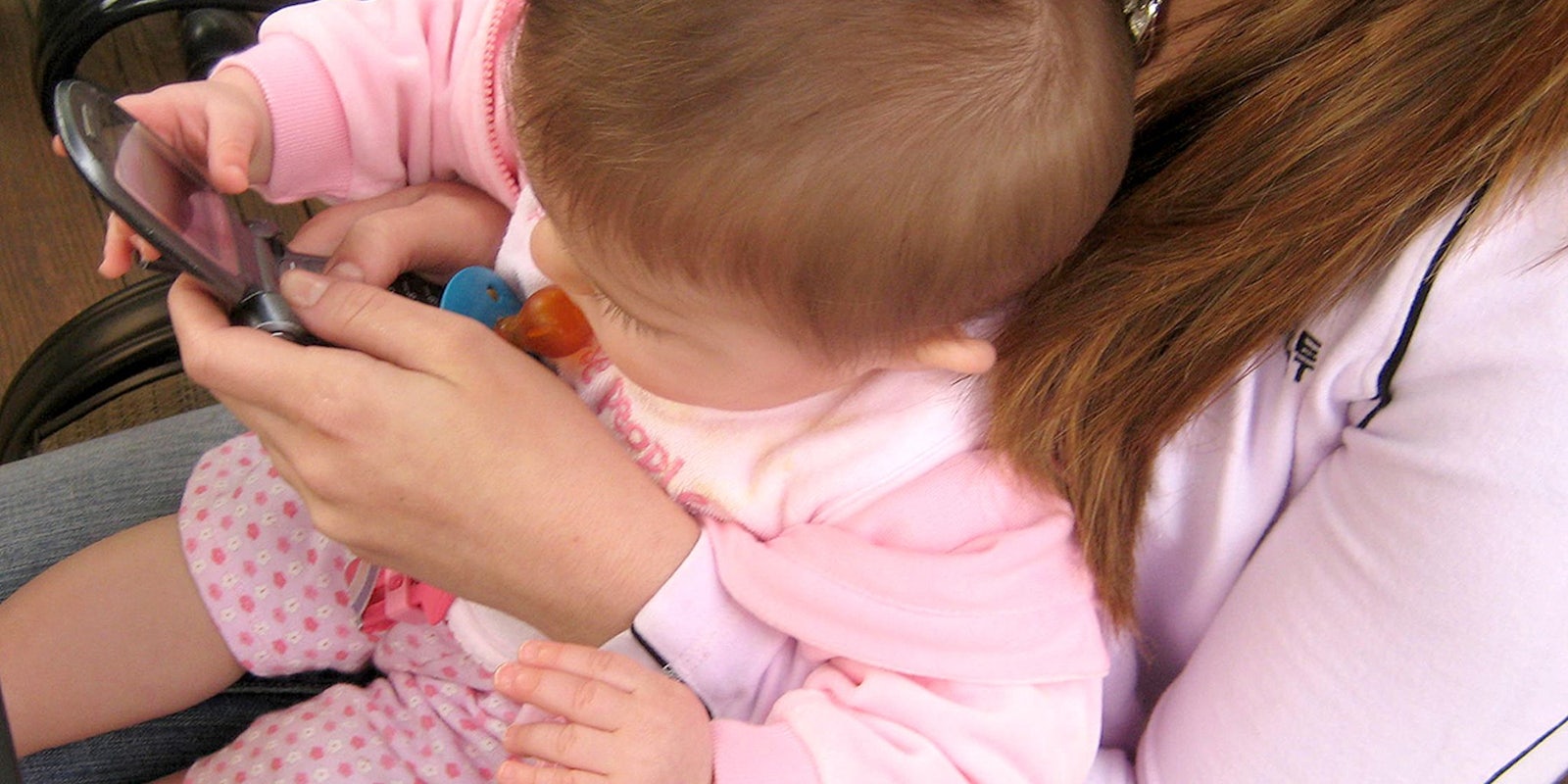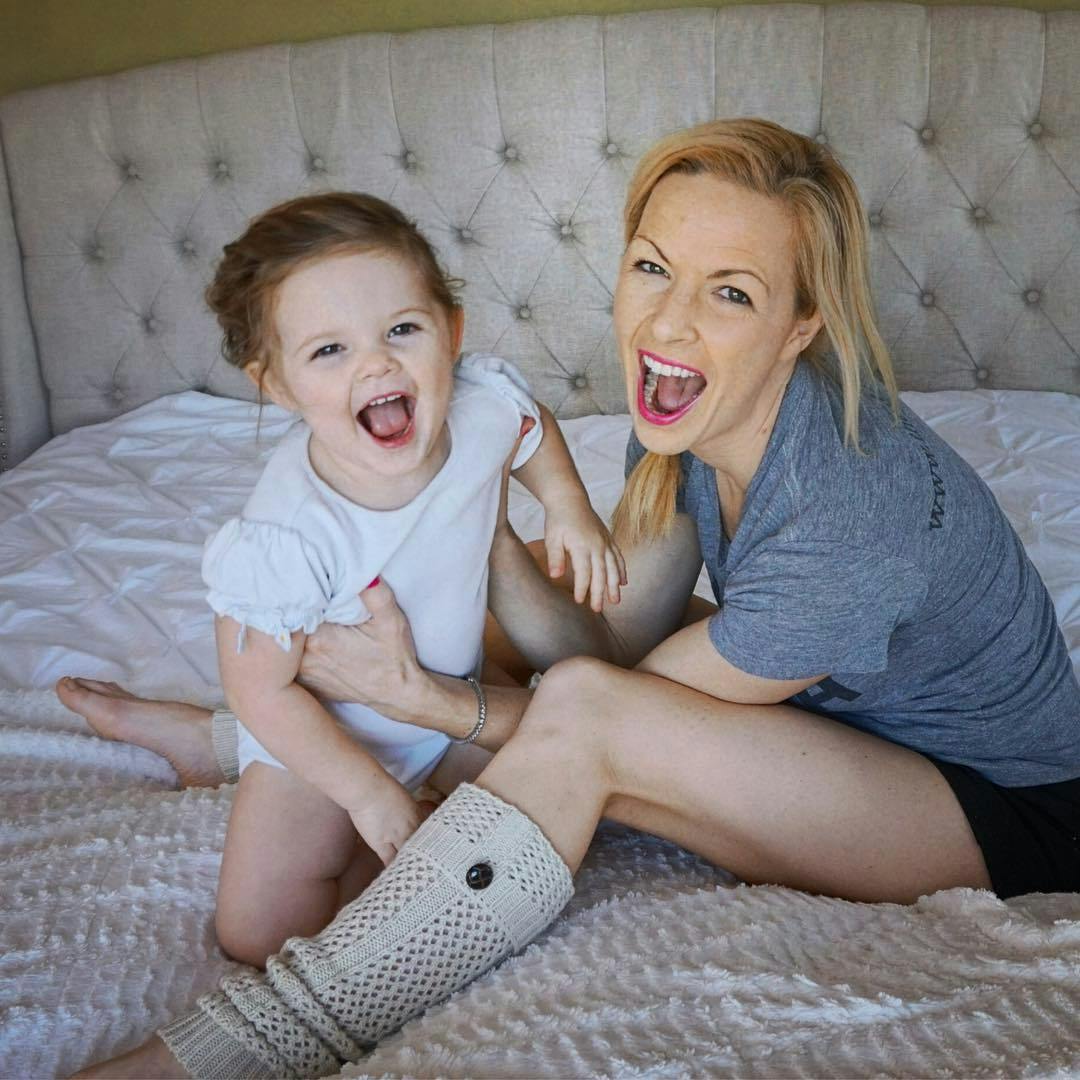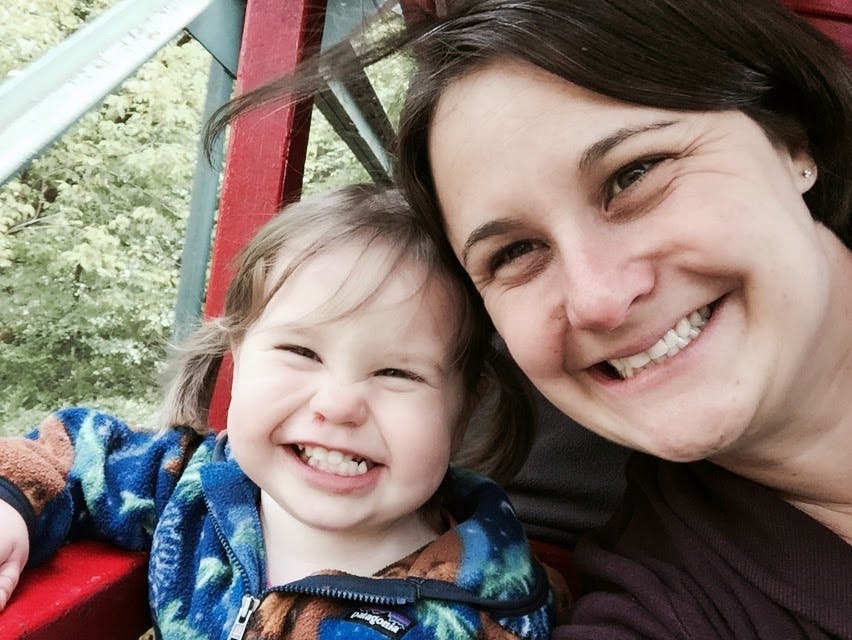Meg Gerritson was pumping gas in the Massachusetts beach town where she lives when a woman walked by pulling a wagon. In it was a baby about the same age as Gerritson’s son, and the woman, who was walking home from the beach, clearly lived close enough to Gerritson that the two could be friends. But Gerritson had never seen her before.
“I thought, ‘Who is this woman?’ and ‘Why is there nothing that allows you to find new moms in your area?’” she recalled.
Gerritson’s experience with the loneliness of new motherhood and the frustration of being unable to meet mom friends is common. What set Gerritson apart is that she did something about it.
Joining forces with a local friend, and eventually two other moms across the country, Gerritson founded Hello Mamas, a website that allows moms to connect with other mothers in their area.
Those of you who are not parents may be rolling your eyes at the need for so-called dating apps for moms, but nearly anyone who has experienced parenthood knows the desperate need to talk to people who just get it. No matter how great your childless friends are, there is something invaluable about having friends that understand the unique—and often, emotionally complicated—stage of life that you are in.
This explains the surge in popularity of mom friend apps over the past few years. Hello Mamas began in Boston in 2013, went national in 2014, and international in 2015. Now, it has around 100,000 users.
Covey, another mom-friend-finding app, began in 2014 and is rapidly expanding across the country, with more than 10,000 users. Several similar apps are also in the works.
While new and expecting mothers have been populating online forums for quite some time, this new breed of technology offers a 3D twist: the ability to take friendships from online to in-person.
“Before I had kids, I would have thought, ‘Really? That’s a thing?’ and now I think, ‘Oh, I get it. That’s a thing,’” said Jaleen Tyler, a San Diego mom who used an app called MomCo to meet local mothers, one of whom has become a close friend.
“I wouldn’t have known that it was necessary,” Tyler said. “I was never one for online dating in general. But you do get more isolated with a child. It’s really been very helpful.”
Helping other mothers was exactly what inspired Vanessa Jameson, co-founder of Covey. When Jameson’s daughter was born, she happened to be surrounded by other women who were having babies around the same time, and those women became an instrumental support system for her.
“I was never one for online dating in general. But you do get more isolated with a child. It’s really been very helpful.”
“I learned how to be a mom from my mom friends, and I don’t know how I would have learned without them,” Jameson said. When her daughter was about a year old, Jameson and her friends were reflecting on how lucky they were to have each other through the transition to motherhood, and how all parents deserve a way to connect with other one another.
For Jameson, who was working as an engineer at Google, the conversation planted an idea that she wasn’t able to let go of.
“My mind immediately went to tech options and how we could really make this easy for people,” she said.
Research has shown that having a social support system isn’t just a nice luxury—it actually has health benefits for mom and baby. A 2014 study by the National Institutes of Health found that loneliness and lack of social support increased a new mother’s chance of postpartum depression significantly. Another study published in the Journal of Clinical Nursing and reported in Scientific American found that women with strong support networks were 75 percent less likely to be depressed.
When Jameson began researching, she found data reporting that 79 percent of moms are on their phones every day, and 82 percent of moms say that it’s hard to make friends.
“It’s the magic combination,” she said.
About six months later, the Covey app was a reality, so much so that Jameson and her co-founders left their jobs.
“It was a big jump, but I think that it’s pretty unusual to get these kind of opportunities, where you have a topic that you’re really passionate about in terms of the problem that you’re solving, and also a technical solution that you’re passionate about building,” Jameson said. “It was a great intersection of my personal interests and technical interests. And once it was in my head, it didn’t feel like a choice.”
While Covey initially focused on allowing users to build one-on-one connections, much like dating apps, the team soon realized that building trust through online communities helped parents make the leap to meeting up in-person.
“One of the things we learned is that there’s something very important about a digital group dynamic and getting to know each other,” Jameson said. “Even as desperate we can sometimes be to make a new friend or a new connection, it can be hard to go from a basic profile to a real-world connection, and I think sometimes people can underestimate the size of that step.”
Because of this, Covey switched to a model that is focused less on one-on-one connections, and more on building online communities, often centered around existing parenting communities like local meet-ups and blogs.
“What we decided to do was build a platform for those existing parenting communities,” Jameson explained. These coveys, or groups, bring together parents who are united by something they have in common—like military experience, geographic location, or hobbies—and the common interests facilitate connections that make meeting up in person more comfortable.
“There is so much value in developing rapport as a community online, and then more selectively transitioning that into the real world,” Jameson said. “We want to be a bridge between online connections and the real world.”
“I was super nervous,” recalled Tyler, the San Diego mom. “You’re putting yourself out there like dating, with no idea how it’s going to go or what it’s going to be like. I was looking around thinking, ‘Can I see them before they see me? Will I like them?’”
By building online communities that branch out into in-person connections, Covey hopes to bypass some of the initial awkwardness of finding new friends.
Stephanie Cooley, a mom from Bonsall, California, used meetup.com to find mom groups after her daughter was born. At the time, about two years ago, the reach of mom-friend-finder apps and sites like Hello Mamas and Covey Mom was much smaller. While Cooley had success using meetup.com, she said that she understands the need for mom-specific websites and apps.
“I’ve signed up for other groups where it’s not mom-affiliated, and I haven’t gone to any of them,” she said. “I think that there’s so many [mom-specific sites] because there’s a huge need for them. You want to have this connection with another live mom.”




